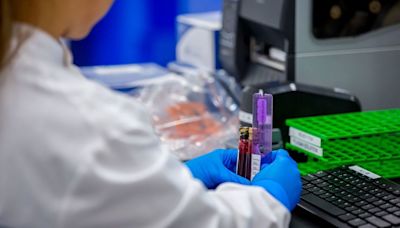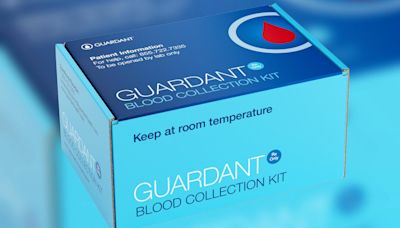Search results
People also ask
What are acceptable screening tests for colorectal cancer?
Where can I get a colon cancer screening test?
Should I get a colon cancer screening?
Dec 6, 2022 · Colonoscopy takes about 30 to 60 minutes and screening is generally repeated every 10 years if no abnormalities are found and you don't have an increased risk of colon cancer. The pros: Colonoscopy is one of the most sensitive tests currently available for colon cancer screening.
Oct 20, 2023 · There are five types of tests that are used to screen for colorectal cancer: fecal occult blood test, sigmoidoscopy, colonoscopy, virtual colonoscopy, and DNA stool test. Learn more about these and other tests in this expert-reviewed summary.
Several screening tests have been developed to help doctors find colorectal cancer before symptoms begin, when it may be more treatable. Some tests also allow adenomas and polyps to be removed before they become cancer. That is, colorectal cancer screening may be a form of cancer prevention in addition to early detection.
- What is colorectal cancer?Colorectal cancer (cancer that develops in the colon and/or the rectum ) is a disease in which abnormal cells in the colon or rectum divide unc...
- Who is at risk for colorectal cancer?In the United States, colorectal cancer is most common in adults aged 65 to 74. Rates of new colorectal cancer cases are decreasing among adults...
- What do colorectal cancer screening guidelines say about who should have colorectal cancer screening?Should People Over Age 75 Be Screened for Colorectal Cancer? New study suggests screening in people over age 75 lessens their risk of dying from th...
- How can people and their health care providers decide which colorectal cancer screening test(s) to use?It is important to have colorectal cancer screening. Different tests have different advantages and disadvantages, and people should talk with their...
- Does health insurance pay for colorectal cancer screening?Colorectal cancer screening is a preventive service that the Health Insurance Marketplace and many other health plans are required to cover. M...
- What happens if a colorectal cancer screening test finds an abnormality?If a screening test finds an abnormality (a lesion or tumor ), additional tests may be needed. These tests most often include a colonoscopy...
- What new tests are being developed for colorectal cancer screening?Among new approaches to colorectal cancer screening that are being explored are ways to improve visualization of the colon. One technique is capsul...
Test options for colorectal cancer screening. Colorectal cancer screening tests can be divided into 2 main groups: Stool-based tests: These tests check the stool (feces) for signs of cancer. These tests are less invasive and easier to have done, but they need to be done more often.
Oct 5, 2023 · Key points. There are several tests, some of which can be done at home. Most people should begin screening for colorectal cancer soon after turning 45. Overview. A screening test is used to look for a disease when a person doesn't have symptoms. (When a person has symptoms, diagnostic tests are used to find out the cause of the symptoms.)
Several test options are available for colorectal cancer screening: Stool-based tests. Highly sensitive fecal immunochemical test (FIT) every year. Highly sensitive guaiac-based fecal occult blood test (gFOBT) every year. Multi-targeted stool DNA test with fecal immunochemical testing (MT-sDNA or sDNA-FIT or FIT-DNA)) every 3 years.
Feb 5, 2021 · There are several different screening options for colorectal cancer. No matter which one you choose, the important thing is to be tested. If you’ve delayed your screening appointments or they have been postponed due to the COVID-19 pandemic, talk to your doctor about the steps you can take to safely resume these important tests.





